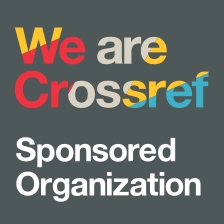Measuring the Implementation of Indonesia’s Press Freedom in Joko Widodo’s Presidential Era
DOI:
https://doi.org/10.35457/translitera.v10i2.1332Keywords:
Press Freedom, Democratic, OligopolyAbstract
Press freedom is an important part of a democratic state formation system. In line with the fourth pillar in building a democratic state and society, press freedom is an absolute must. This study aims to measure the extent to which the implementation of press freedom materialized during Joko Widodo's leadership. Researchers used a qualitative approach with descriptive methods and processed data based on literature study. The analysis shows that during the Joko Widodo administration period, the ban on press freedom in Indonesia could still be felt. Looking at the facts that the oligopoly practice of media ownership is still being carried out and the massive government efforts to interfere with press affairs such as reviving the buzzer industry and acts of violence against journalists, press freedom has not really been felt even though the current conditions can be said to be better than before the reform era.
References
Arief, H. (2019). Medali Kebebasan Pers Jokowi, Simbol Matinya Nurani Pers Indonesia. Kumparan.com. https://kumparan.com/hersubeno-a rief/medali- kebebasan-pers-jokowi-simbol-matinya-nurani-pers-indonesia- 1550019637199384281
Ariyanti, V. (2010). Kebebasan Pers dalam Perspektif Peradilan Pidana. KOMUNIKA: Jurnal Dakwah dan Komunikasi, 4(1): 1-13.
Burhanan, A. (2019). Bebas Tak Bebas Pers Papua. VOA. https://projects.voanews.com/kebeb asan-pers-papua/indonesian/main/ memilah- fiksi-dan-fakta.html
Hutagalung, I. (2013). Jejak Perkembangan Sistem Pers Di Indonesia. Dinamika Sistem Pers di Indonesia, II(2): 55.
Moleong, L. J. (2006). Metodologi penelitian kualitatif. Bandung: PT. Remaja Rosdakarya.
Mustapa, A., Suntoto, I., & Yanzi, H. (2014). Pengaruh Pemberitaan Media Massa Dalam Gejolak Politik Terhadap Pembentukan Sikap Pemilih Pemula. JURNAL KULTUR DEMOKRASI, 3(4): 3.
Mustika, R. (2019). Pergeseran Peran Buzzer Ke Dunia Politik Di Media Sosial. Diakom: Jurnal Media Dan Komunikasi, 2(2): 144-151.
Rahmi, R. (2019). Kebebasan Pers dan Demokrasi di Indonesia. Jurnal Komunikasi dan Kebudayaan, 6(1): 78-85.
Rasid, A. (2011). Pola Interaksi Pers, Pemerintah dan Masyarakat Dalam Membentuk Sistem Pers Pancasila: Suatu Analisis Retrospektif, Sosiohumaniora: Journal of Social Sciences and Humanities, 13(2): 190.
Ruswandi, A. (2004). Menakar Kadar Kebebasan Pers Indonesia. Mediator: Jurnal Komunikasi, 5(2): 265-274.
Saleh, K. (2012). Implementasi Metode Penelitian Kualitatif Dalam Bidang Pendidikan. Jurnal Wahana Akademika: Jurnal Studi Islam dan Sosial, 12(2): 60.
Widiastuti, T. (2016). Kepemilikan Media dan Demokrasi di Era Digital Information Age. In Prosiding Seminar Nasional INDOCOMPAC.
Downloads
Published
Issue
Section
License
Authors who publish with this journal agree to the following terms:
- Copyright on any article is retained by the author(s).
- Author grant the journal, right of first publication with the work simultaneously licensed under a Creative Commons Attribution License that allows others to share the work with an acknowledgement of the work’s authorship and initial publication in this journal.
- Authors are able to enter into separate, additional contractual arrangements for the non-exclusive distribution of the journal’s published version of the work (e.g., post it to an institutional repository or publish it in a book), with an acknowledgement of its initial publication in this journal.
- Authors are permitted and encouraged to post their work online (e.g., in institutional repositories or on their website) prior to and during the submission process, as it can lead to productive exchanges, as well as earlier and greater citation of published work.
- The article and any associated published material is distributed under the Creative Commons Attribution-ShareAlike 4.0 International License












